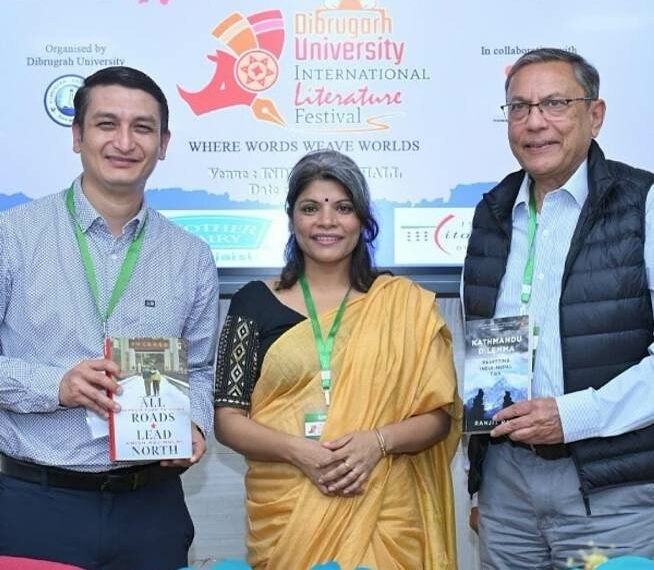Dibrugarh: The question of whether Nepal should align itself more closely with the north or the south was a prominent topic of discussion at an international literary festival being held at Assam‘s Dibrugarh University.
The four-day event, featuring over 200 writers from around 25 countries in Asia, Africa, and Europe, is hosting over 50 sessions on various literature and culture-related issues.
One of the topics of discussion was “Nepal Narrative: People, Palace and Politics” where Kathmandu-based author Amish Raj Mulmi, known for his book “All Roads Lead North: Nepal’s Turn to China”, took part as a panellist on Thursday evening.
Talking about his book, Mulmi admitted that Nepal’s relationship with India has taken a dent in the past few years with the nation’s increased dependence on China.
He said his country, with deep historical and cultural connections with India rather than China, had to “look north” towards China due to a lack of resources to carry on economic development.
In a lighter vein, another panellist and former Indian ambassador to Nepal Ranjit Rae suggested that the book should have been titled “All Roads Lead to South…” since Nepal is more connected (historically and culturally) to India.
Meanwhile, Mulmi said abolition of the 240-year-old monarchy in 2008, which also marked the end of the only Hindu nation in the world, led to an improved relationship with India for a few years, only to turn worse later.
Another Nepal-born writer Smriti Ravindra, known for her debut novel “The Woman Who Climbed Trees”, emphasised the similarities between the sister nations – India and Nepal.
Mulmi and Ravindra highlighted the common misrepresentation of Nepali people in literature, noting that they are frequently depicted as solely living in the Himalayas and mountain climbing. This portrayal ignores the large lowland region of Terai in southern Nepal.
Ravindra, who hails from Terai, said due to the misconception of writers, the readers rarely learn the real stories of the people.
She also said the people of southern Nepal, called Madheshis, are sometimes mistaken as Indians even within Nepal due to their physical resemblance with Indians.
The Madheshi community often feels neglected by northern Nepalis and the government due to their close proximity to Indians, she lamented.
Ravindra, who identifies herself as a Madheshi rather than a Nepali, also proudly stated that marriages with Indians are common in her family.
ALSO READ: Assam: IIT Guwahati, BRICS Youth Council host ‘Entrepreneurship Pre-Consultation Event’
“It feels less like marrying into another country and more like marrying into another state,” she said.
Meanwhile, responding to a question from the audience, the two writers admitted that although Nepalese have travelled across the world, the diaspora literature has not been up to the mark.















